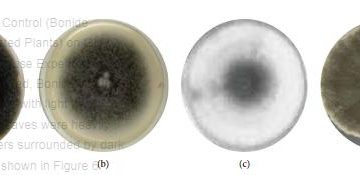Phaseolus vulgaris L. is considered one of the most essential legume crops in Kenya. Alternaria alternata is an economically significant plant pathogen that causes Alternaria leaf spot which accounts for over 70% yield losses of beans in Kenya. Chemical fungicides based on copper and sulfur are used to control Alternaria leaf spot in bean plants, but their prolonged use has adversely affected the environment and the health of workers. Researchers tested the biocontrol potential of bacterial agents from soil planted with Rosecoco bean plants infected with A. alternata. Using bacterial suspensions at different time intervals, it was evaluated the putative bacterial biocontrol activity against A. alternata under greenhouse conditions. B. subtilis and B. velezensis bacterial biocontrol agents significantly suppressed disease severity by 20% and 21.2% on the 45th day, respectively. This study demonstrates that B. subtilis and B. velezensis are promising biocontrol agents that could be integrated in the management of Alternaria leaf spot.
Reference: Karonji, Stella, Odhiambo, Nixon Odiwuor, Muli, Joshua Kiilu, Mugweru, Julius, Mwirichia, Romano, Control of Alternaria Leaf Spot of the Common Bean (Phaseolus vulgaris L.) Using Soil-Derived Biological Agents, Scientifica, 2024, 3896663, 9 pages, 2024. https://doi.org/10.1155/2024/3896663































